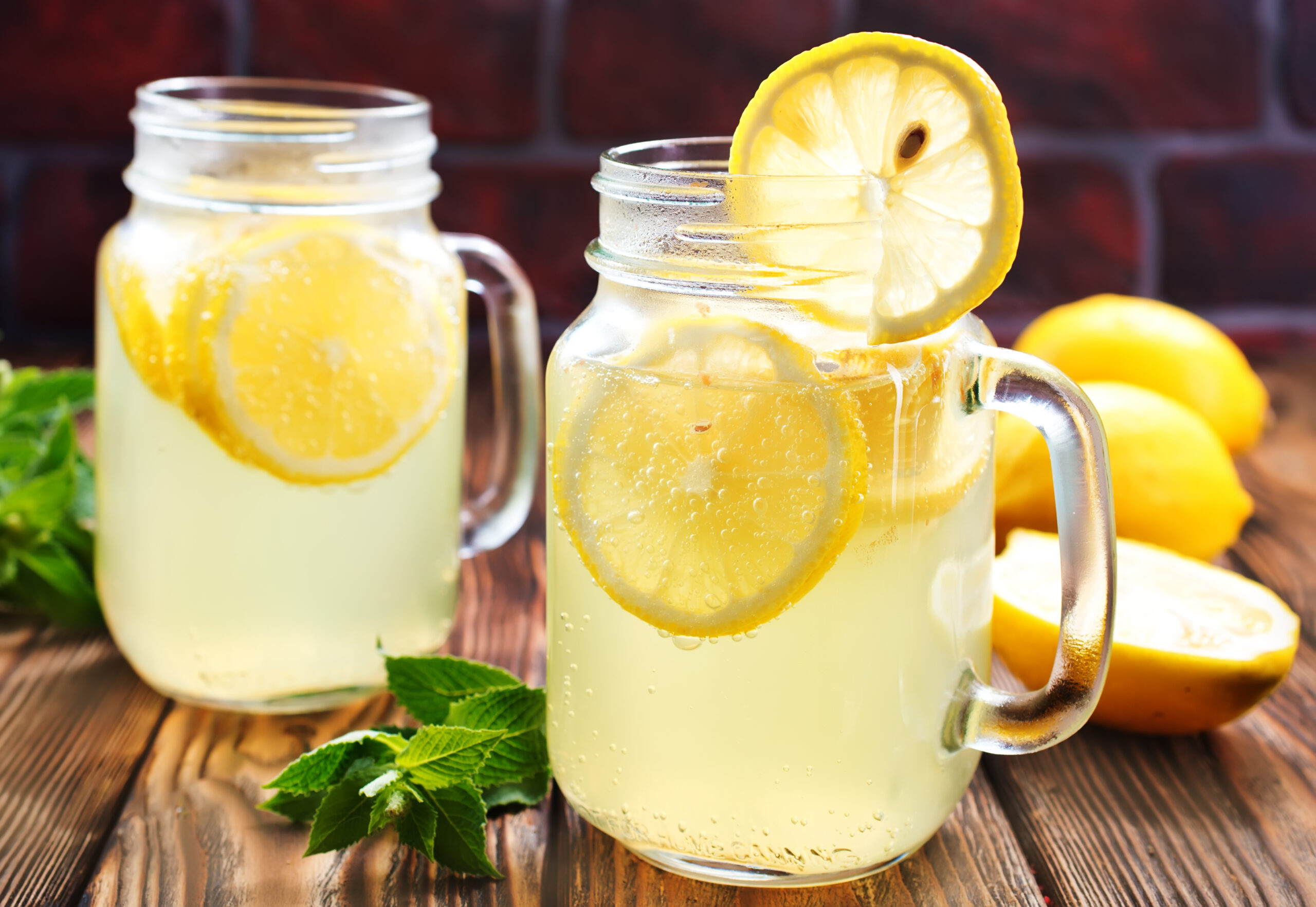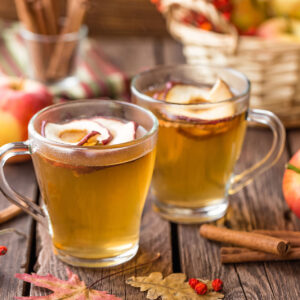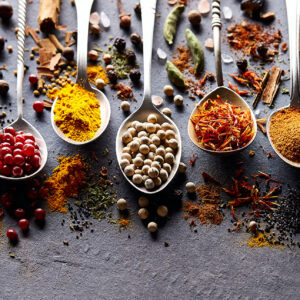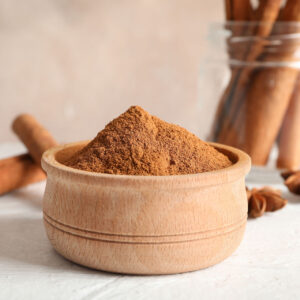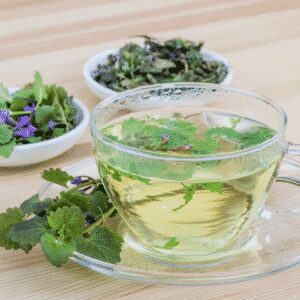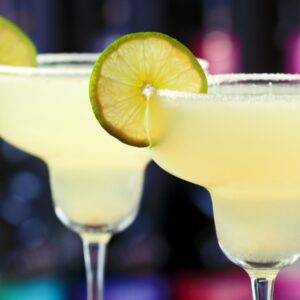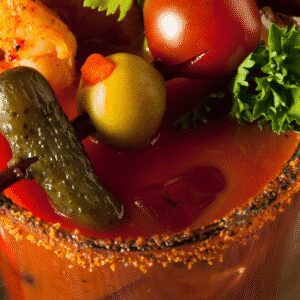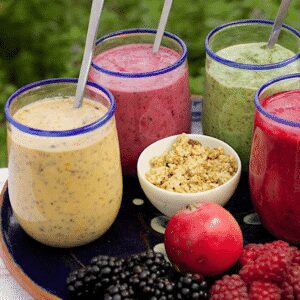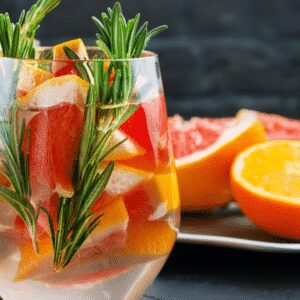Written for Spice Station Silver Lake by Amanda Csolak
Today is June 21st, which means it’s Summer Solstice, and Summer is officially here. If you’re like me, you love summertime and everything about it. Especially all the delicious food and ice-cold beverages that help make Summer great. One such ice-cold drink is the ever-refreshing lemonade. Often seen for sale by kids in neighborhoods trying to make a buck, this sweetened lemon-flavored drink brings smiles to both kids and adults alike. Read more to learn about the origins of lemonade and the amazing variations that exist today.
Lemonades Popularity
Lemonade isn’t only found in the United States. The fact is, there are many varieties of lemonade throughout the world. Here in the United States and in South Asia, the common type of lemonade made is known as cloudy still lemonade. In places like the United Kingdom, Central Europe, Ireland, South Africa, Australia, and New Zealand, carbonated lemonade soda is more common. Despite the obvious differences between the two beverages, each is called “lemonade”.
The History Behind Lemonade
Many people living in the United States believe that the origin of lemonade is American through and through, but I’m here to tell you that’s simply not true. You may be surprised to learn that this popular summer drink actually originated overseas. The fact is the lemon hails from what is now China, India, and Myanmar. It wouldn’t be surprising if the people of the area consumed some kind of lemonade, but the earliest record of lemons being used in a beverage hails from 12th-century Egypt.
Originally the beverage enjoyed by the Egyptians was made by fermenting barley and incorporating mint, black pepper, rue, and citron leaf. This concoction was called Kashkab, and as lemons were introduced to the land, this beverage evolved into qatarmizat, which essentially was a lemon-flavored water with sugar. This ancient beverage recipe closely resembles the modern lemonade we all know today.
Lemonade Is Good For You
Lemons offer a range of health benefits attributed to their rich nutritional profile. They are abundant in essential vitamins such as vitamin C, vitamin B6, vitamin A, vitamin E, folate, niacin, thiamin, riboflavin, and pantothenic acid, along with minerals like copper, calcium, iron, magnesium, potassium, zinc, and phosphorus. Additionally, lemons provide a good source of protein. Moreover, lemons contain flavonoids, which are compounds known for their antioxidant and cancer-fighting properties. The consumption of lemons can contribute to various health advantages. It aids in preventing diabetes, constipation, high blood pressure, fever, and indigestion. Furthermore, lemons can enhance the condition of the skin, hair, and teeth.
Emerging research has indicated that the consumption of lemonade or lemon juice may play a role in reducing the occurrence of kidney stones. These studies suggest that lemonade or lemon juice can promote the formation of urinary citrate, a substance that inhibits the crystallization process involved in kidney stone development. By increasing urinary citrate levels, lemons may help prevent the formation of crystals, thereby reducing the risk of kidney stone formation.
Lemons possess potent antibacterial properties that have been demonstrated in various experiments. Research has revealed that the juice of lemons can effectively eliminate bacteria associated with severe diseases such as malaria, cholera, diphtheria, typhoid, and others. These findings highlight the potential of lemons as a natural agent for combating and destroying harmful bacteria responsible for these deadly illnesses.
The Other “Ades”
While Lemonade remains king of the summertime drinks, it is far from the only refreshing beverage with the suffix “-ade” in the name. Beverages such as cherryade, limeade, and orangeade are all comparable to lemonade in that they are made much the same way, just involving different fruits.
- Cherryade – A carbonated soft drink with cherry juice as the main ingredient. It can also be a non-carbonated drink. It first appeared in the 19th century, in addition to other drinks like ginger beer and limeade, both of which had become popular, following in the footsteps of lemonade’s popularity.
- Orangeade – This refreshing orange beverage is made with fresh orange juice, fresh lemon juice, a bit of simple syrup, and some water.
- Limeade – A popular cousin of lemonade, limeade combines tart lime with sugar. Simple syrup or honey syrup can be used to sweeten the pitcher. Some even like to mix in vodka or white tequila to make a limeade cocktail.
Modern Lemonade Varieties
In addition to everyone’s favorite, the classic lemonade and the others mentioned above; you will find that there are endless variations to homemade lemonade. Here we will highlight some of my personal favorites.
- Pink Lemonade – The true origin behind pink lemonade is debatable, but some place it’s creation at a circus. Today it’s nearly as popular as the original lemonade, and while it can be colored pink by various means, most use some kind of red fruit juice to give it that blush-colored hue.
- Strawberry Lemonade – By far, the most popular alternative to classic lemonade, and for good reason. This beverage is sweetened with strawberries which pair perfectly with the tartness of the lemons. I personally can’t get enough.
- Blueberry Lemonade – Blending blueberries into a pitcher of lemonade not only creates a beautiful pinkish purple color, but it also creates a refreshing antioxidant-rich beverage that will leave the table asking for more.
- Peach Lemonade – The peach is another summertime fruit that I just love. I have always loved making peach cobbler in summer, and when I first sipped on a peach lemonade, I knew I had been missing out on something truly special. Now it’s one of my go-to favorites to make every summer.
- Watermelon Lemonade – My absolute favorite beyond favorites is watermelon lemonade. This cooling fruit beverage is the ultimate summer beverage. The sweetness of the juicy, red watermelon infused with lemon juice and sugar or honey creates a true treat in a glass.
How To Make Lemonade
You may be wondering why you need a recipe to make lemonade. After all, it’s just lemon juice, sugar, and water, right? Well, yes, but it’s not as simple as just throwing these three ingredients into a pitcher and hoping it comes out correctly. Sure, making lemonade is easy, but it’s important to get the ratios of ingredients right. If you add too much lemon juice, it will become too tart, and if you mix in too much water, you’ll create a weak watered-down version of lemonade. So if you follow these steps in the recipe I’ve included below, I promise you’ll create the best lemonade on the block.
You can incorporate any of the other fruits I highlighted above to give your drink a little more color and flavor, have fun in the kitchen, and get to mixing that ade.
The Best Lemonade Recipe Ever
Prep Time: 10 minutes
Cook Time: 5 minutes
Total Time: 15 minutes
Yields: Eight 8-oz glasses
Equipment You’ll Need: A small saucepan, a wooden spoon, a lemon squeezer, a glass pitcher, and eight 8 oz glasses.
Ingredients:
- 6 cups water divided
- 1 cup Lemon Sugar (Granulated cane sugar can be substituted)
- 1 cup fresh squeezed lemon juice
Instructions:
- Combine 1 cup water and 1 cup sugar in a small saucepan. Place over medium-low heat and stir til sugar is dissolved. Remove from heat and set aside. Allow to cool for 10 minutes.
- Pour 1 cup fresh squeezed lemon juice into a pitcher. Add sugar/water mixture, which is now a simple syrup.
- Add the remaining 5 cups of water and stir well. Pour over ice and serve, or transfer to the refrigerator and allow to chill for several hours before serving.
My Favorite Watermelon & Raspberry Sugar Lemonade Recipe
Prep Time: 15 minutes
Cook Time: 5 minutes
Total Time: 20 minutes
Yields: 6 servings
You’ll Need: A blender, a wooden spoon, and a large pitcher
Ingredients:
- 6 cups cubed seedless watermelon, chilled
- 4 cups cold water
- ¾ cup freshly squeezed lemon juice, chilled
- ⅔ cup Raspberry Sugar (more or less to taste)
- Ice and fresh mint leaves for serving
Instructions:
- Add watermelon to a blender and pulse until well pureed, you should have about 4 cups at the end. Pour through a fine mesh strainer into a bowl.
- In a large pitcher, whisk together water, lemon juice, and sugar until the sugar has dissolved. Stir in pureed watermelon. Stir in ice and mint (alternately ass ice and mint leaves directly to individual cups and pour lemonade over. Store in refrigerator.
- If you don’t have time to chill the ingredients, just use more ice instead of some of the water.

